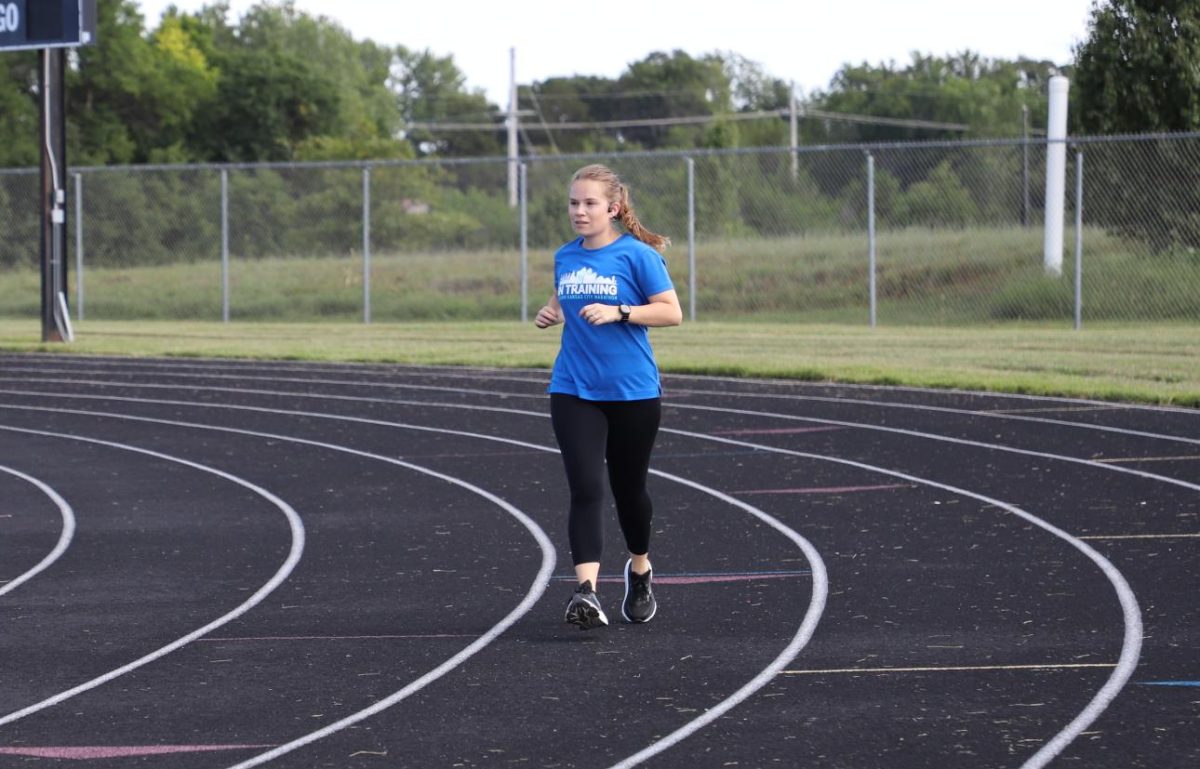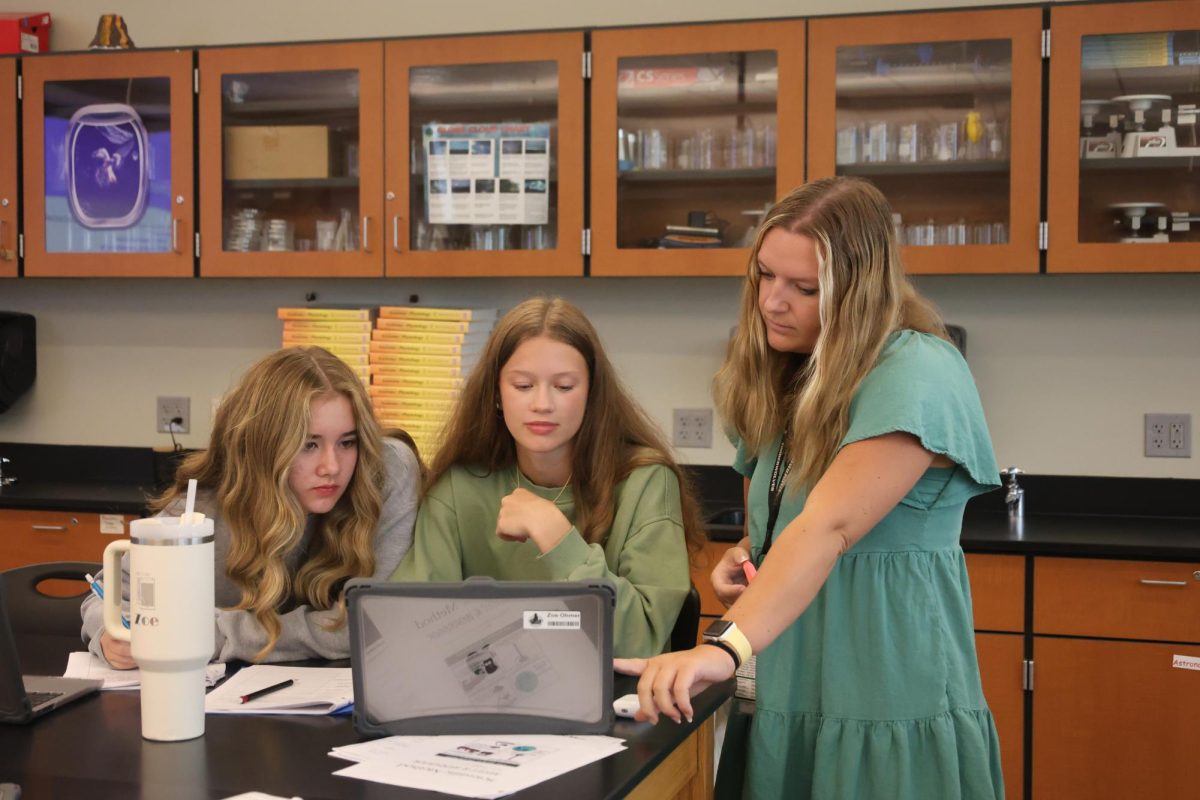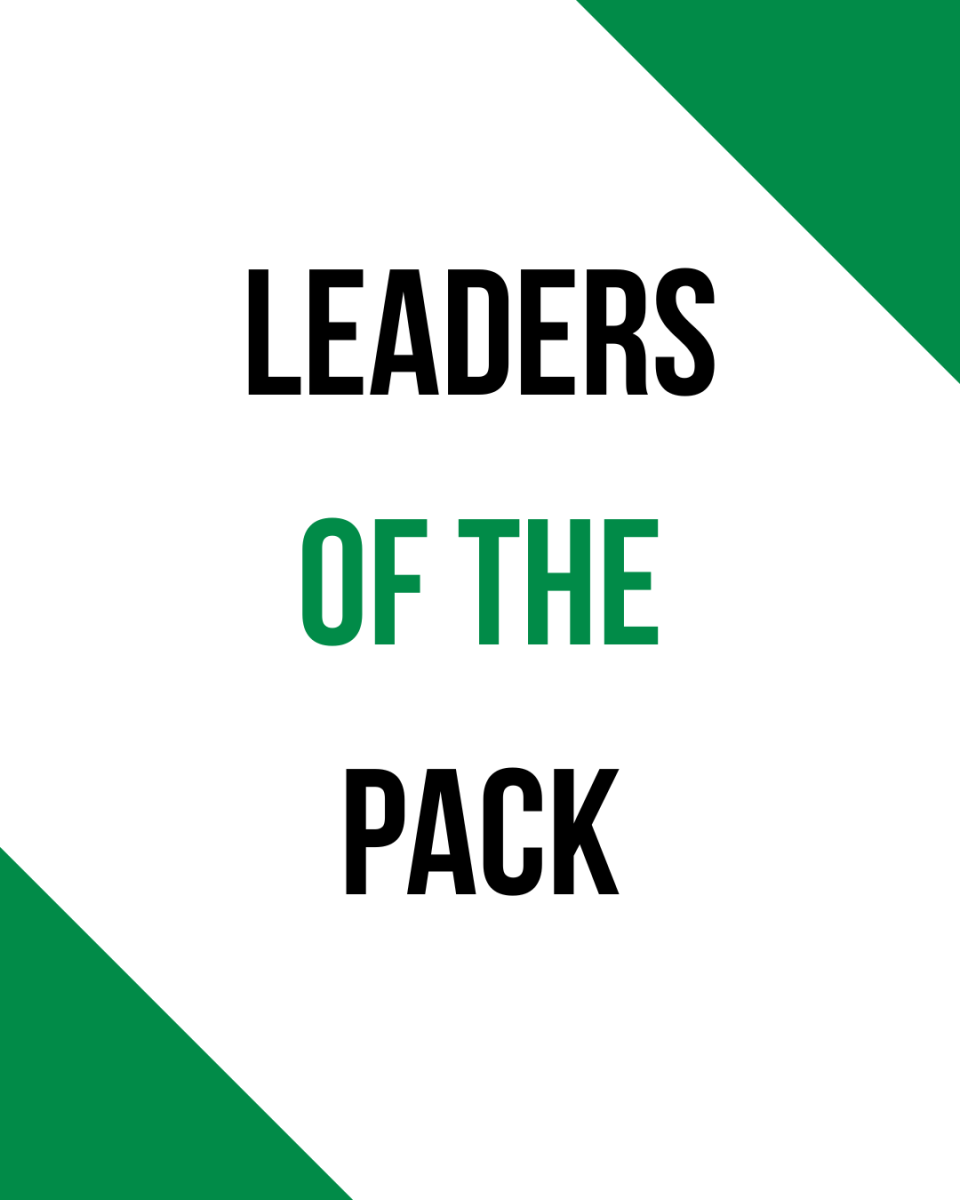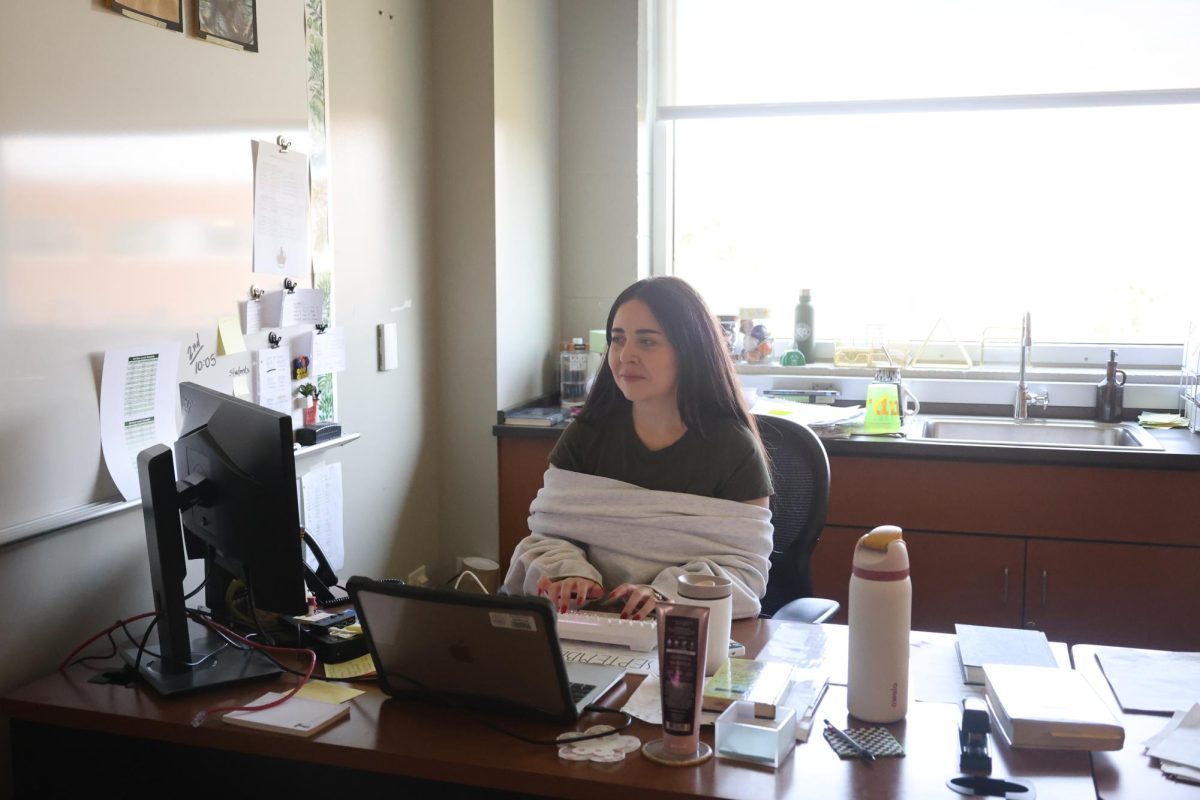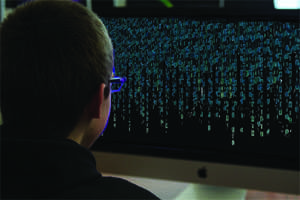
Cell phones. Computers. Social media. Video games. Each of these modern conveniences is considered to be an everyday
necessity. Yet, they can be extremely complex and deceptive in their outward simplicity.
Behind the user-friendly interfaces lies a much more daunting-looking chunk of lines of text, commands and symbols. Behind the outward appearance lies a series of lines of code that have been slaved over and fine- tuned for hours.
While there are many different languages, many styles of programming that can lead to an end result, they all dictate what a program can do, given certain circumstances and parameters. A community of students at Southwest is exploring this potential for knowledge and has taken the initiative to learn coding, to learn languages that are embedded in society.
Many from this relatively underground community, including senior Chris Cowan, think that programming is beneficial for personal growth. In fact, programming has begun to appreciate a meteoric growth, both in population and in the workforce, that exist to accommodate programmers. The Bureau of Labor Statistics estimates that jobs for programmers will increase by 22 percent, by 47,000 jobs, in the next 7 years. And well
renowned universities, such as Harvard, have encouraged their professors to cater to the growing online community by posting coding lectures on YouTube.
“I think the programming I have done has helped me in terms of logical thought processes and problem solving,” Cowan said. “The basics of programming give you a good understanding of how to think through prob- lems rationally.”
More people, such as Class of 2012 graduate and successful coder Chris DiNit- to, have outwardly advocated the personal benefits of coding.
“It isn’t just the coding that changed me as a person,” DiNitto said. “It was fac- ing a challenge and taking the initiative to overcome it. That’s what changed me. It is like solving an incredibly difficult puzzle with pieces that continuously change. It takes a special mind to be able to do something like programming, and it’s vastly under-appreci- ated.”
While those like DiNitto advocate vocally for their passion, students such as sopho- mores Jacob Hegna and Wesley Caldwell continue to keep to their coding community, creating games and programs for nothing more than self-gratification.
Not every coder will end up like DiNitto, whose program was bought out by Monster,
or like Arash Ferdowsi, BV Northwest grad- uate and creator of the $4 billion enterprise, Dropbox. But more often than not, kids are being implored to code for fun.
And that’s exactly what students have been doing. Hegna and Caldwell began their virtual expeditions by writing scripts to cre- ate calculators and games of Blackjack, but they have now moved on to more complex, more time-consuming and more rewarding programs like BrickBreaker and Zelda.
All of these programmers are working to- ward a goal, although they vary from person to person, crouching over their computers, continuing to code for satisfaction.
“We are in one of the most exciting times for programmers because the opportunities and capabilities in technology have reached an all time high,” DiNitto said. “Program- mers are now major contributing factors to advancements in medical technologies and lifestyle advances that are changing the world in every way.”
At the end of the day, many coders, like Cowan, try to put their passion into a larger perspective.
“Programming is what basically controls our entire world from a computing stand- point,” Cowan said. “Without it, you have no technology.”


